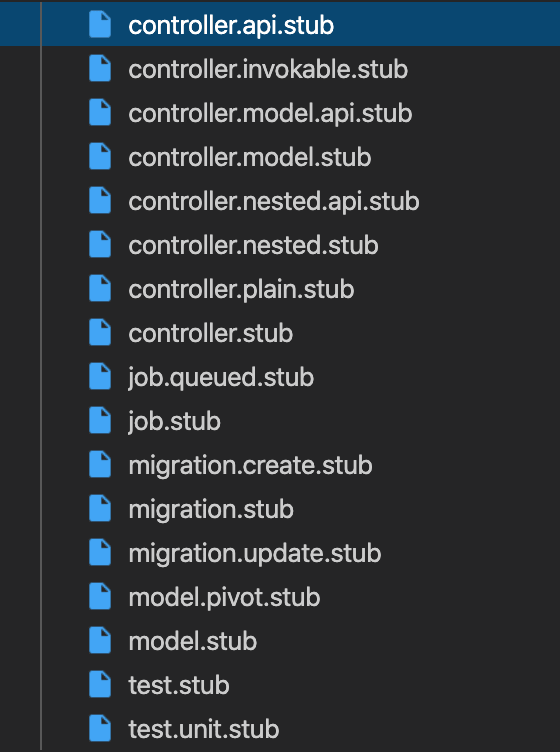In Laravel 7, you will be able to customize stubs.
Publishing stubs
In order to customize stub files, you need to publish them:
php artisan stub:publish
After running this command, a new directory will be added in your project.
Let's have a look at most commonly used php artisan make:controller command stub file controller.plain.stub
<?php
namespace {{ namespace }};
use {{ rootNamespace }}Http\Controllers\Controller;
use Illuminate\Http\Request;
class {{ class }} extends Controller
{
//
}
You can make any kind of changes to this stub file.
Example
Let's say we want every controller to have an __invoke() function.
<?php
namespace {{ namespace }};
use {{ rootNamespace }}Http\Controllers\Controller;
use Illuminate\Http\Request;
use Illuminate\Foundation\Inspiring;
class {{ class }} extends Controller
{
public function __invoke()
{
}
}
Now let's make a controller:
php artisan make:controller StubsTestController
Output:
<?php
namespace App\Http\Controllers;
use Illuminate\Http\Request;
class StubsTestController extends Controller
{
public function __invoke()
{
}
}
Happy Stubbing 👨🏽💻☝🏽
Let me know in comments how this can help you 🤓




Top comments (2)
Thanks for writing this article!
Quite nice that the stubs are available to customise.
Only thing I miss though would be a way of using more variables inside the stub. A table name for a model for example, could perhaps be guessed like this: Str::plural(Str::snake($this->argument('model'))).
But extra variables would make things too complex to keep compatible with the generating functions, so I guess for these use cases a custom generator function would be a better choice.
I am a bit confused where everyone is getting the stub constants from. For example, something like $FIELD_BODY$ or $ROUTE_NAMED_PREFIX$.
Where is the documentation for stub variables? I am having trouble finding it.